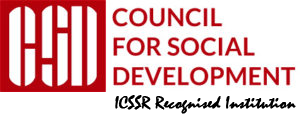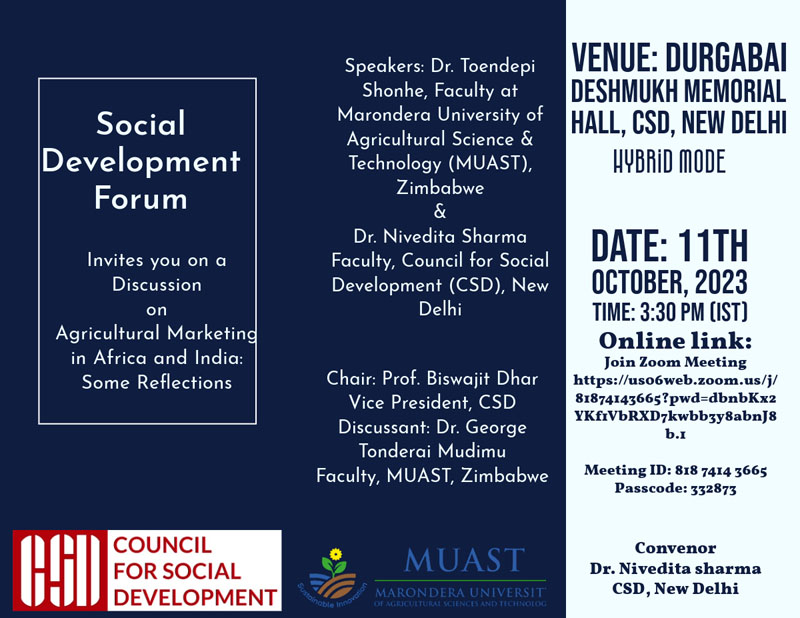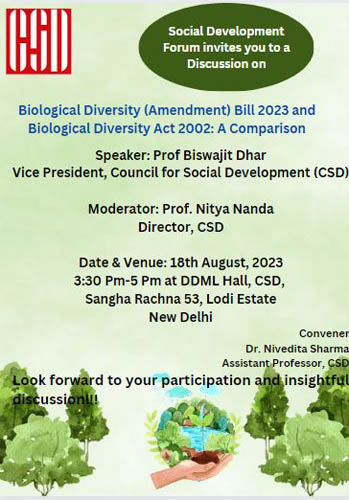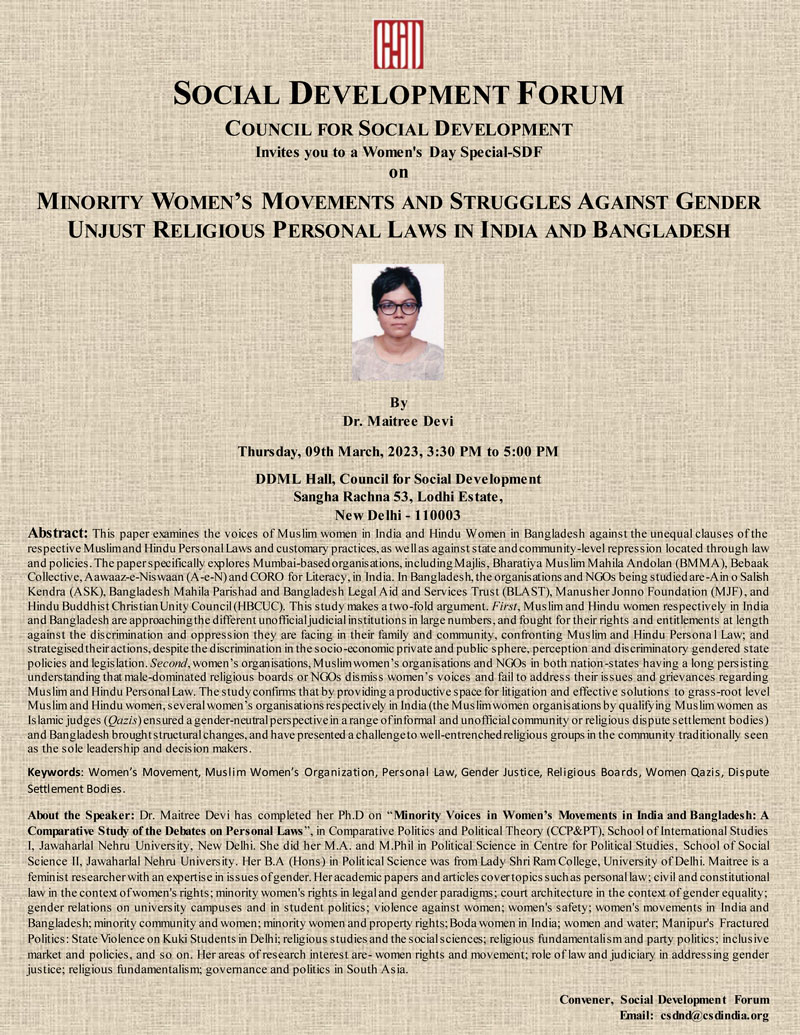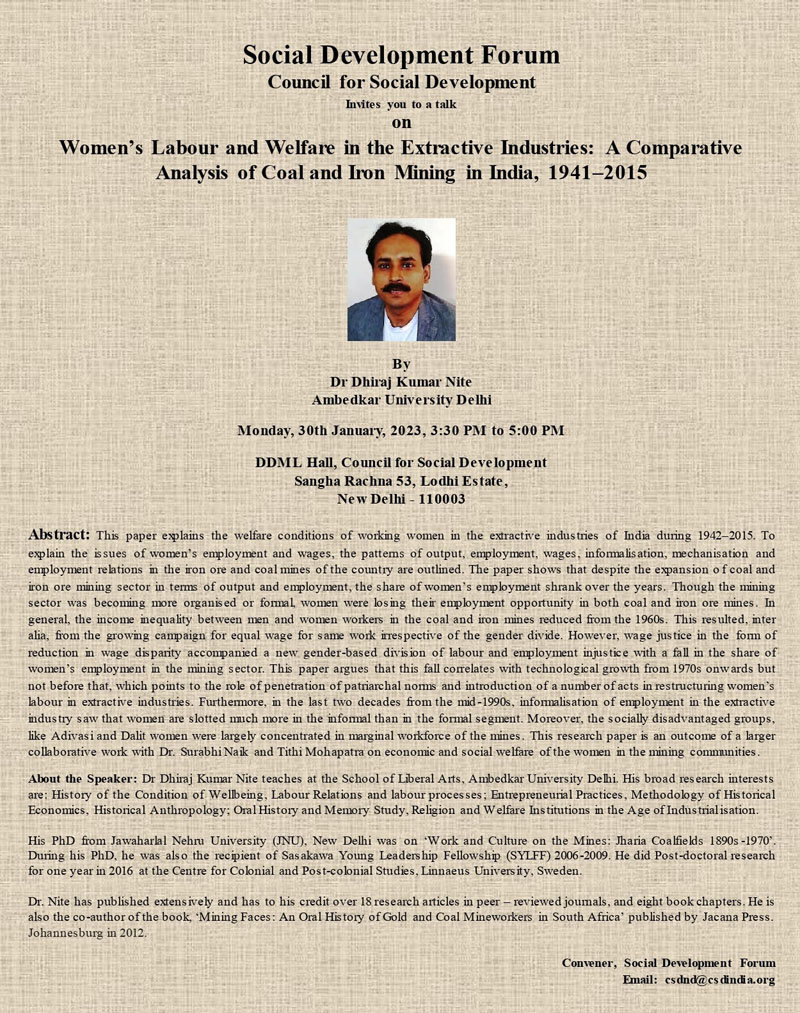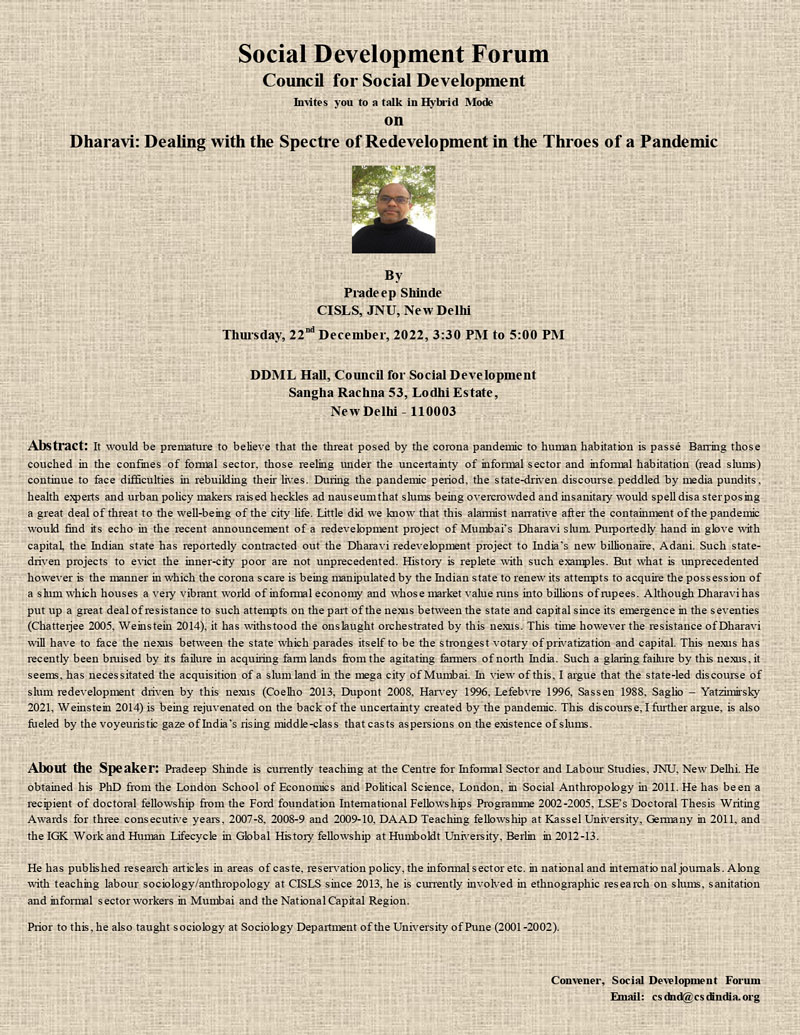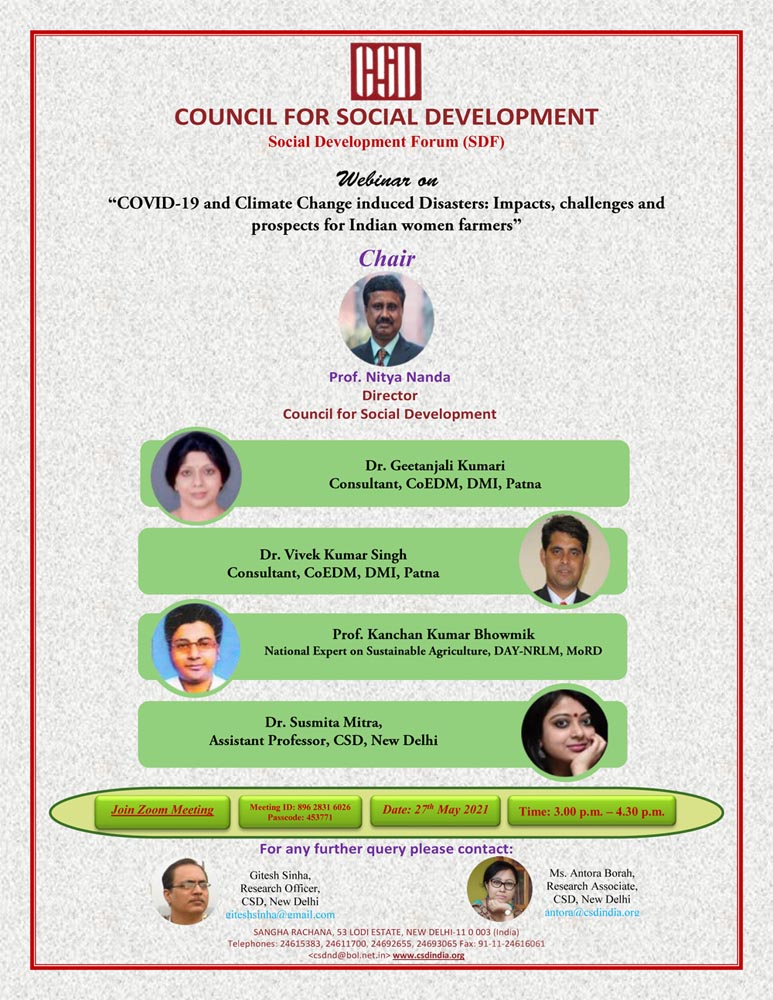Discussion on Biological Diversity (Amendment) Bill 2023 and Biological Diversity Act 2002: A Comparison
Galvanising the Ship of the Indian State: An Agenda for Research and Dialogue
SDF Women’s Day special
Social Development Forum talk on Women’s Labour and Welfare in the Extractive Industries
Social Development Forum talk on Dharavi – Dealing with the Spectre of Redevelopment in the Throes of a Pandemic
COVID-19 and Climate Change induced Disasters: Impacts, challenges and prospects for Indian women farmers
Land Right Movement of Dalit Women in Marathwada: Combating Poverty, Hunger and Gender Inequality
Story of a Farmers’ Struggle in Rajasthan: Six Decades of Struggle and No Success
Speaker: Dr Akhil Alha, Council for Social Development, New Delhi
Chair: Dr T Haque, Distinguished Professor, CSD and Former Chairman, Commission on Agricultural Cost and Prices
Date: January 31, 2019 (Thursday)
Time: 3.00-4.30 PM
Venue: Durgabai Deshmukh Memorial Lecture Hall, CSD, Sangha Rachna, 53 Lodi Estate, New Delhi 110003
Abstract of the Talk
The presentation chronicles a farmers’ struggle being carried out by the farmers of the two villages in Sri Ganganagar district of Rajasthan for the last six decades for getting irrigation water from the Gang Canal which passes through the middle of the village since 1927. The farmers have attempted all possible measures ranging from meeting chief ministers of successive state governments to sitting on fast-unto death but witnessed no success so far. All they have received is assurances from the public representatives. The failure in bringing their village lands in the command area of the canal can largely be attributed to the socio-economic clout of the large farmers of the region, reluctance of public representatives of the region who himself own large landholdings, and the limited support that the struggling farmers have received from farmers’ organizations.
Brief Introduction of the Presenter
Dr Akhil Alha, a PhD from Centre for Economic Studies and Planning, Jawaharlal Nehru University is assistant professor at Council for Social Development, New Delhi since June 2014. His areas of research are Political Economy of Development, Labour and Migration, Discrimination in Labour market, and agricultural economics. He has a number of publications in peer-reviewed journals in the above areas.
Regulating the Medical Profession: Challenges and Possibilities in the National Medical Commission Bill 2017
Schedule of the Programme
Speaker: Dr Ritu Priya, Professor, CSMCH, JNU New Delhi
Chair: Professor Imrana Qadeer, Distinguished Professor, CSD New Delhi
Date: March 22, 2018 (Thursday)
Time: 3.00-4.30 PM
Venue: Durgabai Deshmukh Memorial Lecture Hall, CSD, Sangha Rachna, 53 Lodi Estate, New Delhi 110003
A Brief Introduction of the Talk
The National Medical Council Bill 2017 was tabled in Parliament on 28th December 2017 with the proposal to replace the Medical Council of India as the regulatory body for medical education and practice in the country. This was the response of the PMO-NITI Aayog committee formed after the Parliamentary Standing Committee for Health and Family Welfare, in its 92nd report, strongly indicted the functioning of the MCI and recommended a complete restructuring. The Bill sets out various proposals with the aim of regulating quality of doctors produced as well as the ethics of their practice. Its content has raised much contestation and a host of issues, such as what professionalism should mean and what forms of regulation, by whom, through what mechanisms, need to be considered in order to resolve them so that the restructuring that is sorely required can go through. This talk will attempt to frame the issues from the perspective of public interest and examine the Bill with that lens together with possible mechanisms that can balance the interests of the public and the medical fraternity.
A Brief Introduction of the Speaker
Dr. Ritu Priya is Professor at the Centre of Social Medicine & Community Health, Jawaharlal Nehru University, New Delhi. A medical graduate with a doctorate in Community Health, her work links epidemiology, political economy, popular culture, and health systems research. It has been specifically focused on an eco-social epidemiological approach to urban health,health of marginalised groups, problems of nutrition and communicable diseases, and health systems development. She also works on inter-disciplinary research methodologies, health technology assessment and the ethics of public health. She has co-edited a volume titled ‘Dialogue on AIDS: Perspectives for the Indian Context’ and guest edited a special issue on Universal Access to Health Care of the Indian Journal of Public Health. She was Advisor, Public Health Planning under the National Rural Health Mission with the National Health Systems Resource Centre and is founding member of the Trans-disciplinary Research Cluster on Plural Health Care at Jawaharlal Nehru University.
